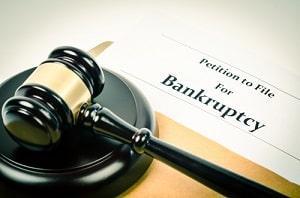 630-393-3111
630-393-3111
4200 Cantera Drive, Suite 200 | Warrenville, IL 60555
How Do You Balance Bankruptcy with Your Divorce?

Financial struggles are cited as one of the most common causes of divorce. Heavy debt and being unable to pay the bills is stressful, which can damage the couple’s relationship. Monetary troubles can also highlight the spouses’ conflicting spending and saving habits. Bankruptcy is one way that a couple may try to resolve their debts and get a clean start, but it may not be enough to save a marriage that has crumbled under the stress. If you are considering both divorce and bankruptcy, you should understand how the two could affect each other.
Should Divorce or Bankruptcy Come First?
It would be chaotic to file for divorce and bankruptcy at the same time. Not only would you be juggling two major court cases, but most of your marital assets would be tied up in the bankruptcy. Which you file for first may depend on these factors:
-
Type of Bankruptcy: There are two types of bankruptcy that most individual consumers use: Chapter 7 and Chapter 13. Chapter 7 bankruptcy may take only a couple of months to complete, which means you may want to file for bankruptcy before your divorce. Chapter 13 takes three to five years because it involves a long-term repayment plan. Unless you are willing to wait that long to divorce, you should complete your divorce before you file for Chapter 13 bankruptcy.
-
Income After Divorce: Many people prefer to file for Chapter 7 bankruptcy, but you may not qualify for Chapter 7 if your marital income is greater than the median income in Illinois for a household of your size. If you individually file for bankruptcy after your divorce, your post-divorce income may be low enough to qualify.
-
Marital Exemptions: There are advantages to jointly filing for bankruptcy before your divorce. You are resolving many of your debts instead of having to divide them as part of your divorce. Illinois bankruptcy law allows spouses to double their property exemption to protect marital assets against creditors.
-
Shared Liability: Some of your marital debts may have primarily benefited your spouse, such as student loans or a business loan using personal finances. If you believe that a majority of your marital debt should be your spouse’s responsibility, you may not see why you should have to jointly file for bankruptcy, which will appear on your credit report. However, allowing your spouse to file for bankruptcy on their own could be disastrous for you. Dividing your marital debts in a divorce does not free you from liability if you are both still listed on the debt agreement. The creditors could come after you for any marital debts that your former spouse did not pay at the end of their bankruptcy.
Contact a Naperville, IL Divorce Lawyer
If your financial struggles leading up to your divorce are bad enough that you are considering bankruptcy, you should discuss the problem with your divorce lawyer. A DuPage County divorce attorney at Calabrese Associates, P.C., works with clients on how to manage monetary difficulties during a divorce. To schedule a consultation, call 630-393-3111.
Sources:
https://illinoisattorneygeneral.gov/consumers/bankruptcy.html
https://www.myhorizontoday.com/bankruptcy101/should-i-file-bankruptcy-before-or-after-my-divorce/


 4200 Cantera Drive, Suite 200, Warrenville, IL 60555
4200 Cantera Drive, Suite 200, Warrenville, IL 60555 630-393-3111
630-393-3111





